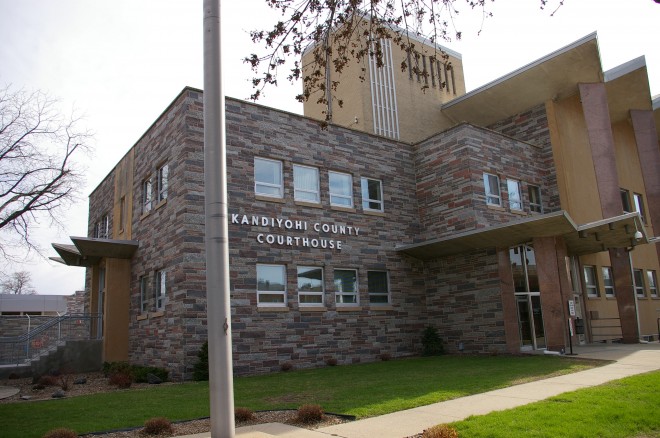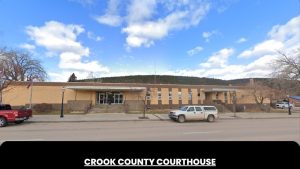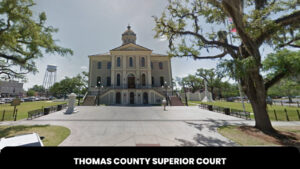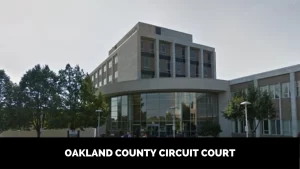Kandiyohi County District Court
location and contact information
The Kandiyohi County Courthouse is located at: 505 Becker Avenue SW Willmar, MN 56201
Phone: 320-231-6206
Fax: 320-231-6276
Kandiyohi County District Court Website | directions
Business Hours:
Mon 8:30 a.m.-4:30 p.m.
Tues-Fri 8 a.m.- 4:30 p.m.
Overview of Kandiyohi County District Court
The Kandiyohi County District Court is located in Willmar, Minnesota and serves Kandiyohi County. This court handles a variety of criminal, civil, family, probate, and traffic cases at the state level.
Location and Areas Served
The Kandiyohi County District Courthouse is located at 505 Becker Ave SW in Willmar. This courthouse houses the district court and its staff, the county attorney’s office, probation, the law library, and other services. The Kandiyohi County District Court serves all residents across Kandiyohi County.
Types of Cases Handled
As a district court, this court handles major criminal cases like felonies. They also oversee civil cases over $15,000, family cases like divorce and child custody, probate and estate cases, as well as juvenile cases. Traffic violations, misdemeanors, and civil cases under $15,000 are handled at the trial court level.
Judges and Staff
The Kandiyohi County District Court currently has two judges – Judge Stephen Wentzell and Judge Dwayne Knutsen. The court administrator oversees court staff including clerks, court reporters, probation officers, interpreters, and other support personnel that keep the court operating and help assist those using the court’s services.
Understanding the Kandiyohi County Court Calendar
The court calendar and dockets contain important scheduling information for cases, hearings, trials and more. Here’s an overview of how to access and understand the Kandiyohi County District Court calendar:
Checking the Calendar and Dockets
The court calendar and case dockets can be found online through the Minnesota Judicial Branch website. The calendar displays scheduled proceedings for the next four weeks while the dockets show all scheduled events for a case. Docket information like case numbers, parties, attorneys, and future dates can be searched online.
Key Calendar Events and Deadlines
Key proceedings and deadlines listed on the court calendar include arraignments, pretrial and settlement conferences, motion and evidentiary hearings, jury selection, trials, sentencing and more. It notes dates, times, courtroom number, judge assigned, and case number for each proceeding.
Calendar Features and Details
The online court calendar allows you to view by date or by judge. Icons indicate the type of hearing such as trials, motions, or sentencings. You can also subscribe to receive email updates when changes are made to the calendar. Published calendars do not show juvenile or sealed cases.
Locating Case Information
To look up details on a specific case, you can search by case number, party name, attorney name, or date range to pull up the docket information including upcoming dates, document filings, and past proceedings for a case.
Navigating Filing Procedures and Rules
There are distinct processes and rules for filing documents and forms with the district court:
Filings Accepted and Processes
Filings that are accepted include initial pleadings to open a civil case, documents for an existing case, and forms to appeal a lower court’s rulings. Filings can be submitted in person at the clerk’s office, by mail, through eCourtMN online, or via eFS professional filing.
Forms and Documents Needed
Many common civil, family, and criminal forms are available online through the MN Judicial Branch. Filing requirements vary by case type but can include summons, petitions, financial affidavits, parenting plans, notice of motions, affidavits of service, and more.
Court Fees and Costs
Filing fees, copy fees, and other costs apply for civil, probate, family, and appellate cases. For example, opening a civil case costs $302-355 depending on the amount claimed. Criminal cases do not involve fees unless expungement is requested. Waivers are possible for those unable to afford fees.
Attending Hearings and Trials
Those involved in a district court case will need to attend proceedings at the courthouse like hearings and trials. Here are some tips for arriving and conducting yourself properly:
Arriving at the Courthouse
Know which courtroom you are assigned to and arrive early to allow time for security screening. Turn off cell phones and remove hats and sunglasses. Visitors should dress respectfully. Do not bring weapons, food, or drinks into court.
Courtroom Conduct and Etiquette
Courtrooms follow strict rules of conduct and decorum. Treat all court staff and participants with courtesy and respect. Stand when the judge enters and exits. Address the judge as “Your Honor”. Avoid outbursts, gestures, or arguments.
What to Expect During Proceedings
The judge or court clerk will call the case, parties will have a chance to present evidence and arguments, witnesses may be questioned, and the judge will render a decision either immediately or in writing. Pay close attention to instructions and schedules for future dates.
Getting Legal Help and Representation
Parties in a district court case are strongly encouraged to seek legal assistance and representation:
Hiring a Private Attorney
Hiring a private civil or criminal defense attorney can help protect your rights in district court. Contact the Kandiyohi County Bar Association for attorney referrals. Shop around and ask about fees, experience, and strategy.
Qualifying for a Public Defender
Those facing criminal charges who cannot afford a lawyer may qualify for a public defender. This tax-funded legal counsel is appointed at no cost based on need. Request a public defender at your first court appearance.
Legal Aid and Self-Help Resources
For civil cases, legal aid organizations may represent low-income individuals for free or reduced costs. The MN courts website also offers legal information, forms, and resources for those representing themselves. Consult court staff with any procedural questions.
Conclusion
The Kandiyohi County District Court handles important criminal, civil, family, juvenile, and probate cases at the county level. Using the court calendar allows you to track case schedules and proceedings. Understanding key dates, filings rules, and courtroom conduct ensures you are prepared. Seeking qualified legal help, whether private, public, or self-guided, can make the legal process easier to navigate.
FAQs
Q: What are the main phone numbers for the Kandiyohi County District Court?
A: The main phone number is 320-231-6205. Other key contacts are the Court Administrator at 320-231-6245 and the Self Help Center at 320-231-6206.
Q: Where can I find the hours of operation for the court?
A: Standard hours are Monday through Friday, 8AM to 4:30PM. The court is closed on state and federal holidays. Extended hours occur on certain evenings and weekends when hearings are scheduled.
Q: How far in advance are court dates scheduled on the calendar?
A: The online court calendar displays scheduled proceedings for the next four weeks. However, cases may have events scheduled several months in advance on the full docket record.
Q: What are the limits on amounts for claims filed in district court?
A: The district court handles civil cases claiming damages of more than $15,000. Claims below $15,000 are under the jurisdiction of conciliation court.
Q: Can I bring my cell phone or laptop into district court?
A: Cell phones must be turned off or silenced in courtrooms. Laptops and tablets are generally allowed for taking notes, but wi-fi and photography are prohibited.






